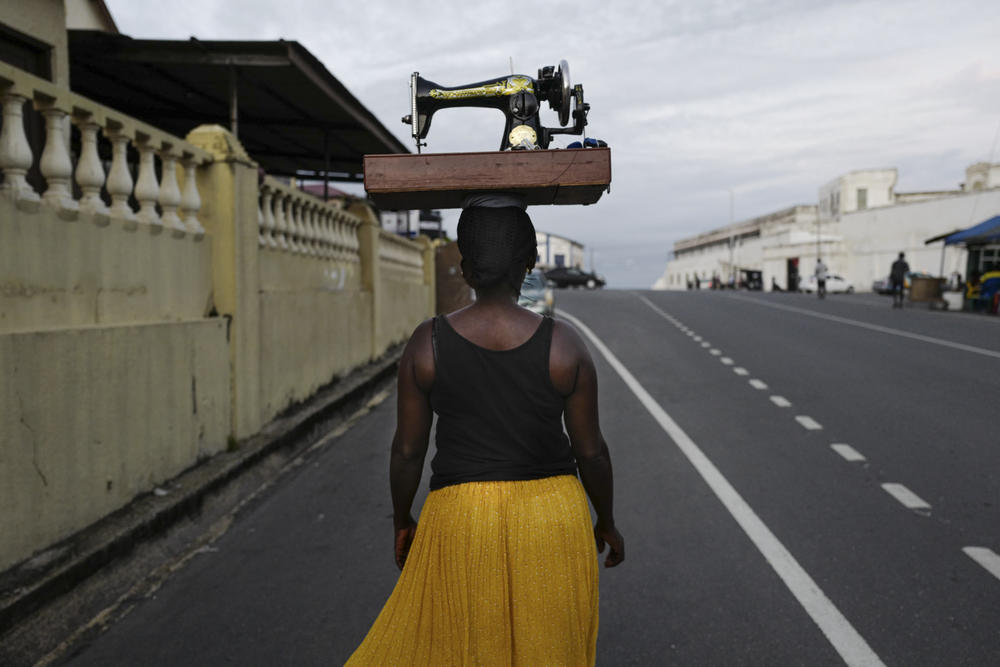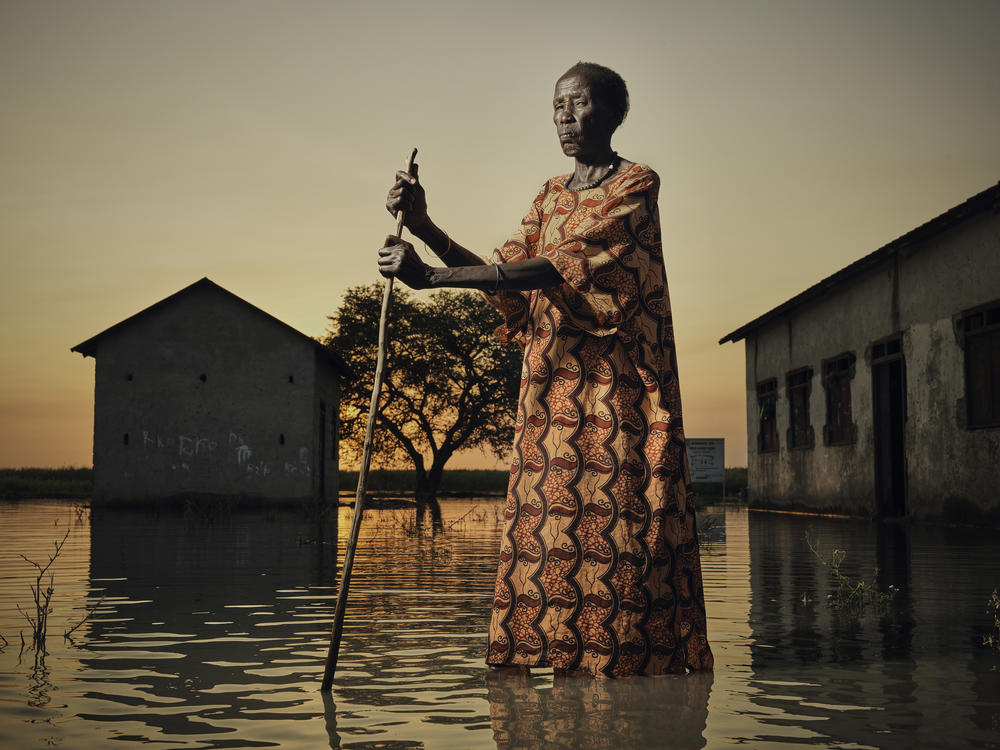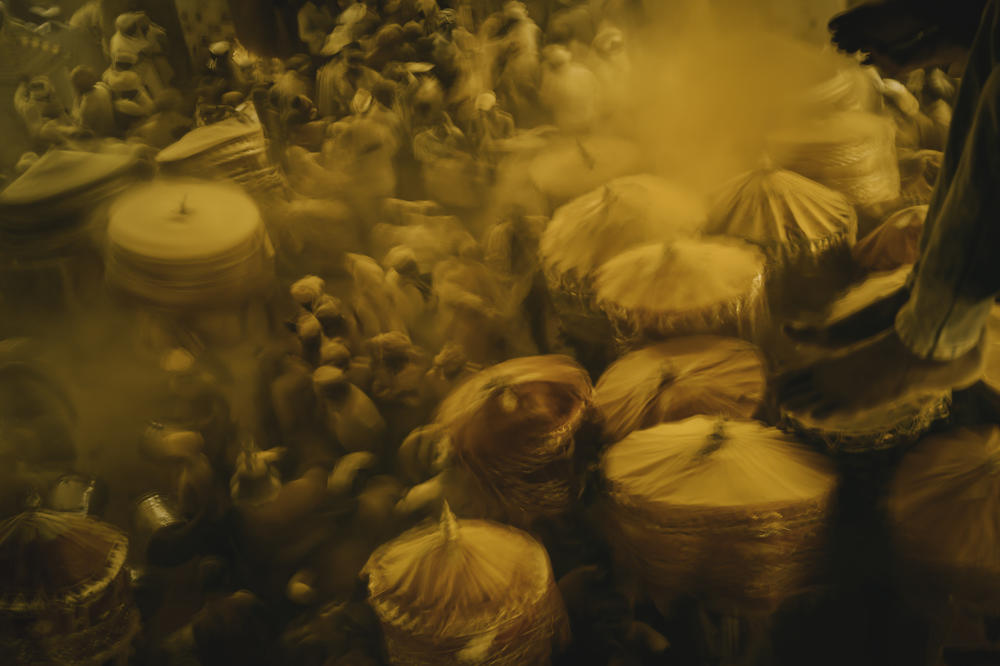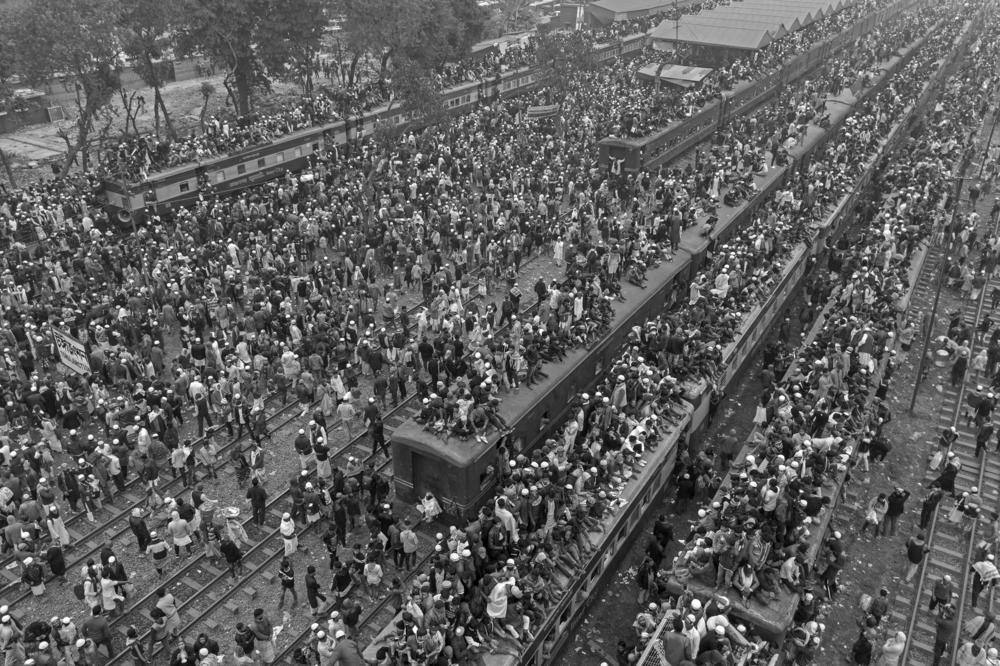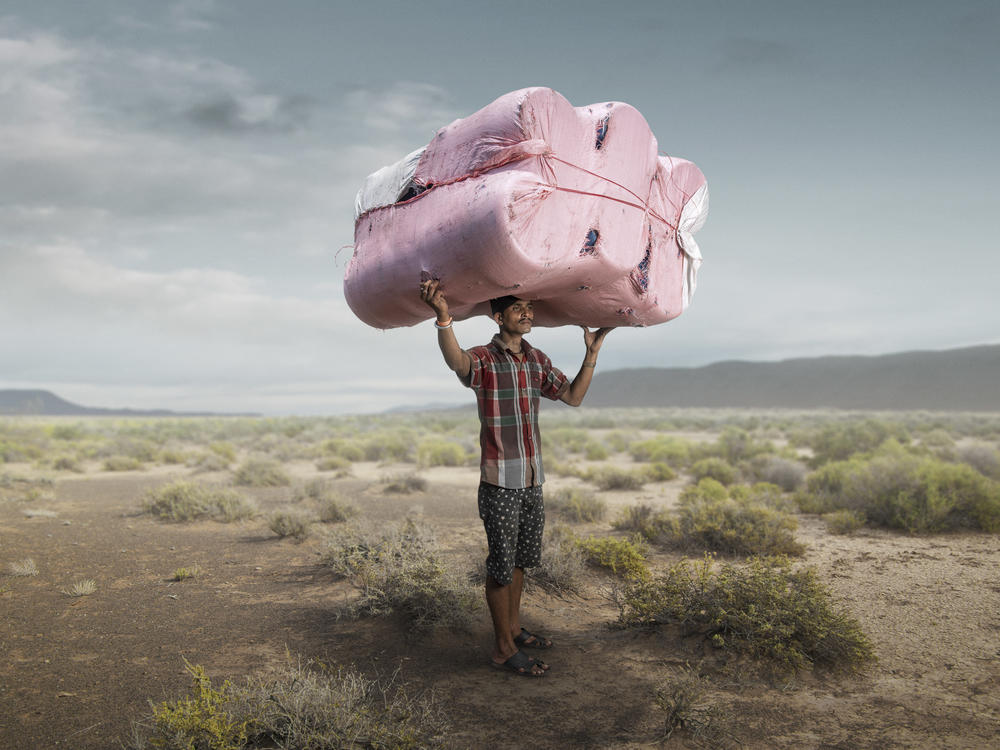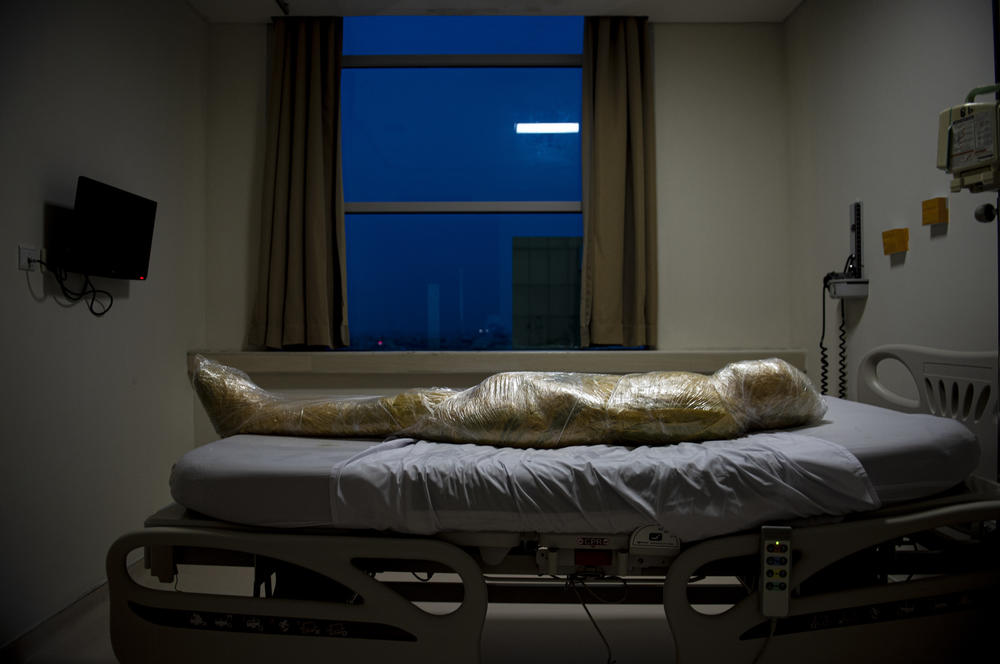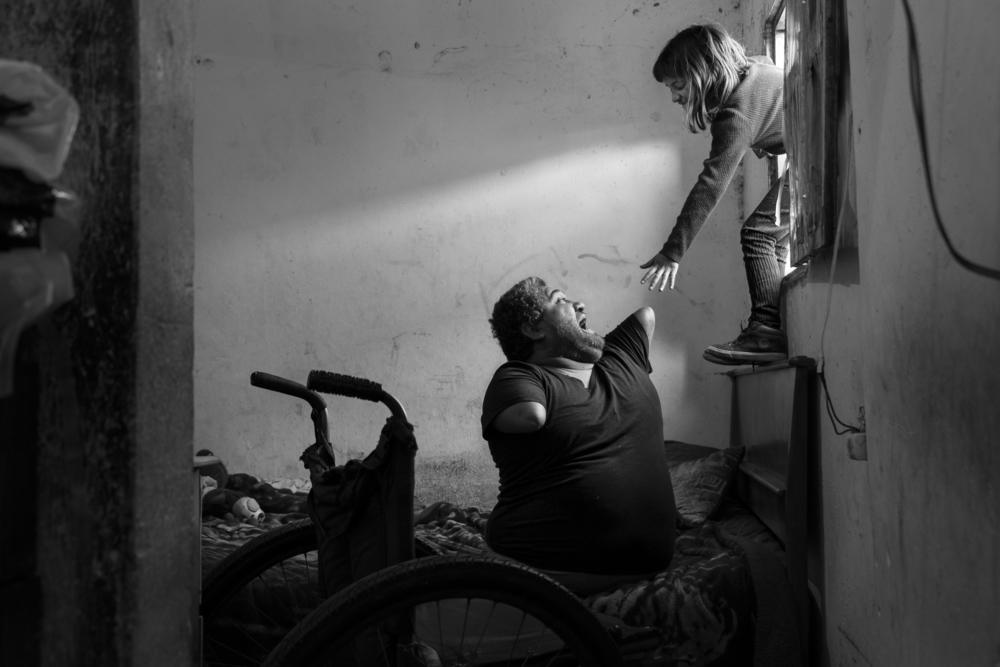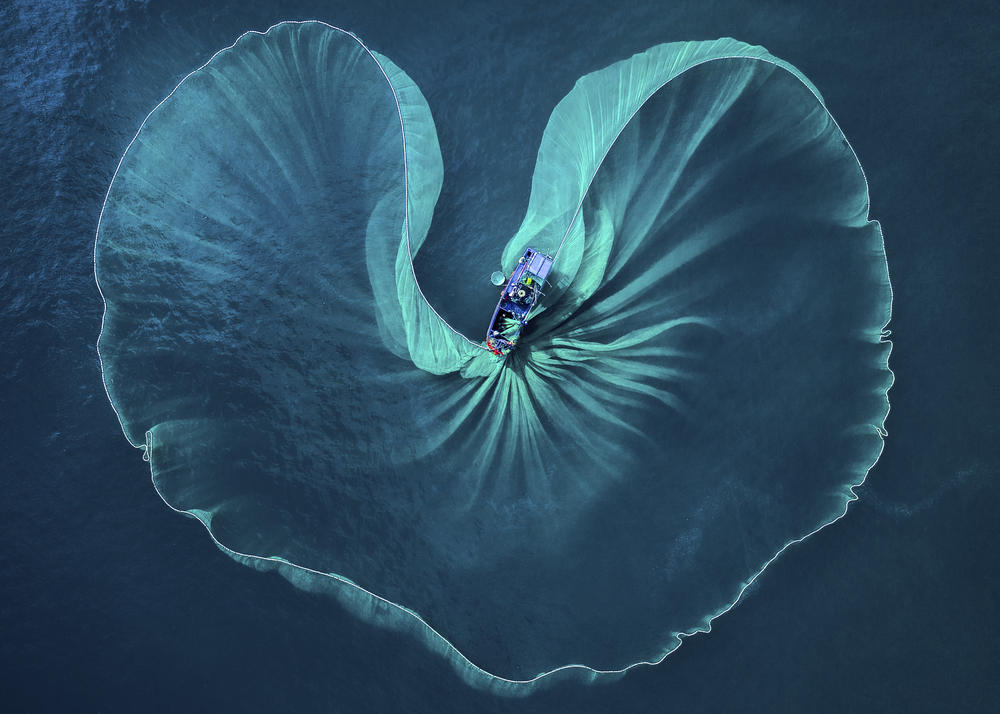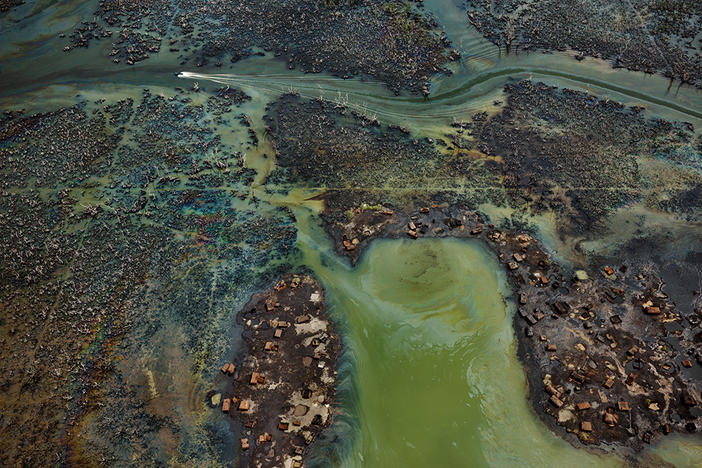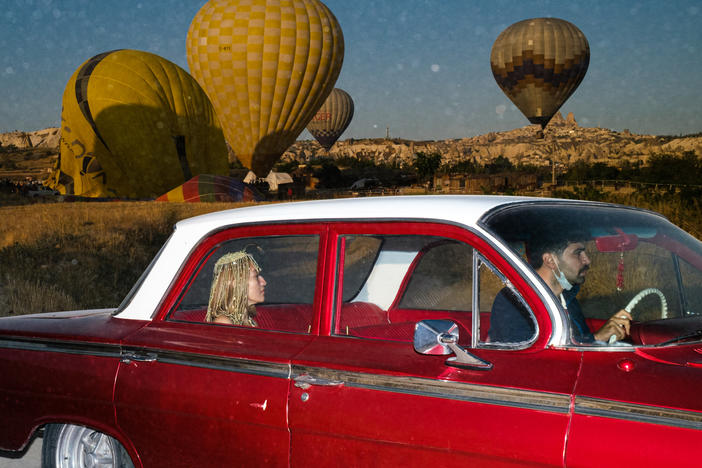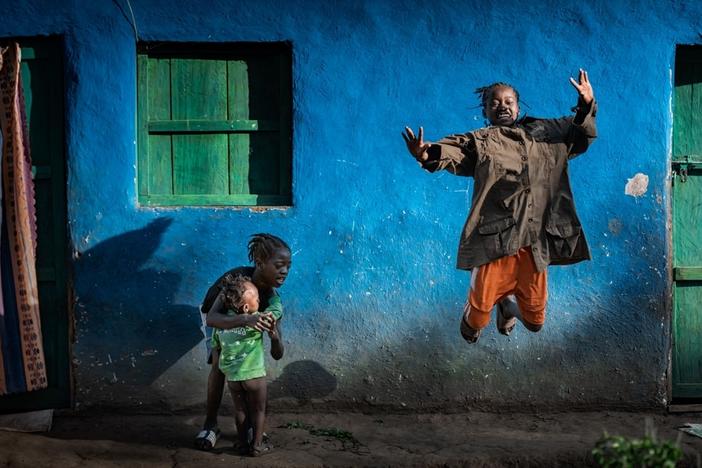Section Branding
Header Content
PHOTO WINNERS: We All Carry A Heavy Load But Let's Not Forget Moments Of Joy
Primary Content
Editor's note: One of the images in this story, of a person who died of COVID-19, could be disturbing to some readers.
An old Pratika camera and a 7-year-old French girl who fell in love with photography is how the All About Photo Awards contest started. That little French girl, Sandrine Hermand-Grisel, is all grown up and, with the help of her "entrepreneurial soulmate" (husband Fabien), created the All About Photo website (a resource guide for anyone interested in photography) and the annual All About Photo Awards.
Hermand-Grisel, who comes from an artistic family that spent weekends exploring art museums, says the website and the contest are part of a path she was meant to take from the first time she held that camera.
"As a girl, I took my camera everywhere," says Hermand-Grisel, who is 47 and lives in San Diego. "I covered my bedroom walls with pictures of the masters of photography. My room became a photography museum unlike my friends who had posters of their favorite actors or music bands."
This year's contest theme, The Mind's Eye — a reference to the essay of the same name by famed photographer Henri Cartier-Bresson — drew more than 6,000 entries from 700 photographers across 23 countries and five continents. Hermand-Grisel says she chose the theme to draw photo submissions "that last and engage our minds and our souls," that you can "look at over and over again."
So of the 6,000, who won the top prize? Tom Price, a London-based photographer for his photo "Porter" — a picture Hermand-Grisel calls "stunning" and "technically perfect in its composition and color palette." But at first she found it bewildering.
"Price's image puzzled me because of its subject, color and surreal feel. An Indian worker, carrying disproportionate pink containers on his head, stands in a no man's land that looks like an American landscape. What was he doing there?"
Then she read the caption explaining that Price used an outside company to recreate a barren landscape around the migrant worker, worlds away from the crowds he would normally be lost in (although Price would not say where the landscape part of the piece is located, emphasizing that the point is to see the subject alone). Price calls it a visual commentary on the migrant worker experience, meant to have a surreal feel, meant to be pondered over. It's the kind of photo that will last in your mind, says Hermand-Grisel.
"As an immigrant myself, the sense of dislocation resonated with me and Price's original and unconventional approach to the difficult subject of migrants made it all the more powerful," says Hermand-Grisel. His "Porter" photo is part of a series he did while living in Kolkata from 2015-2016.
Price, who has lived in a number of countries when not in his native U.K., says his first stop when exploring a new place is the open market because it "offers insight into the cultural heart of a place." And that's where he took his winning photograph: the Barabazar market, specifically — one of the largest wholesale markets in Asia that is so crowded and immense, Price says it feels like being in a soccer match where all these bodies are pressing up against you and you have no choice but to move with the flow of people."
What struck him right away were the men calmly carrying massive amounts of goods on their heads through throngs of people. These men are mostly migrants, says Price, from poorer states such as Biha, with no alternative but to work in places far from home to make ends meet. Initially Price asked them to pose in an empty alley to separate them from the crowds they navigate each day.
But he found that still didn't get across the message that these workers were on a pilgrimage of sorts, far from home and headed to unfamiliar places. He worked with FeatherWax, a retouching and CGI company, to create the stark landscape backgrounds as a way to truly visualize that sense that these men were outsiders.
The second place winner has an all too real subject: death from COVID. But Joshua Irwandi's image of a single corpse, alone in an Indonesian hospital which they wrapped in plastic believing it will prevent infection (although the Centers for Disease Control says there is minimal risk of catching COVID from a dead body). It's a photo that makes you stop and think of the pandemic's catastrophic effect on the world, says Hermand-Grisel.
"We saw devastating images on the news every single day," she notes. "I lost a friend in April and my stepmother was under a ventilator in the ER while we were judging the second round. But whatever the personal experience each one of us may have, this wrapped corpse, alone in a hospital room in Indonesia, is simply devastating."
What surprised Hermand-Grisel about this year's entries was the optimism and idealism in many of the images. With everything going on over the past year — COVID, protests for racial justice and the U.S. and Australian wildfires, to name a few — she expected disturbing, violent or simply sad moments. And yes, she says, there were certainly such photos, like Irwandi's somber portrait, that make you "think, ponder, grasp."
But, she says, there were also images that take us away from the heavy toll of 2020, like a father playing with his daughter in Argentina and a gracefully cast fishing net in Vietnam.
Suzette Lohmeyer is a frequent contributor to this blog and to NPR's health newsletter, Shots. She is based in Arlington, Va. where she can usually be found writing with a dog next to her.
Copyright 2021 NPR. To see more, visit https://www.npr.org.
Bottom Content

